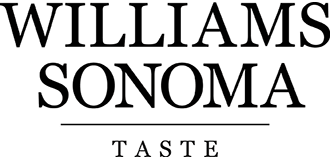
Given that eggs are one of the most sought-after supermarket items, you’d think that they’d be easy to shop for. As it turns out, not so much: there are grades to choose from (AA to B), sizes (everything from small to jumbo), and various health labels (certified organic, free range, cage-free, vegetarian and more). In an effort to demystify all the labeling around fresh eggs, we’re giving you a rundown of all those terms and what each one means.
In terms of size, eggs are labeled everything from peewee (the smallest) to jumbo (the largest). In between peewee and jumbo, you’ll also find small, medium, large and extra-large, with large, extra-large and jumbo being most common. Most recipes are developed for large eggs, so if you prefer to follow recipes by the book, that size is your best bet.
Chicken eggs are also graded by quality at their time of packing, which refers primarily to freshness. The highest grade, AA, refers to the highest-quality, freshest eggs, which have thick whites and firm, plump yolks, and we recommend buying those whenever possible (check the sell date to make sure it hasn’t passed). Behind AA eggs are A eggs, and behind that, B eggs. (Grade B eggs, which are the lowest in quality, rarely make it to the retail market.)

Aside from size and grade, there are a handful of other labels you’ll see in the egg section today, most of the health-related.
- Vegetarian: Hens are omnivorous, preferring to peck on insects if given the chance. The label “vegetarian” implies that they were given feed that contains no animal protein. (This could mean that chickens have not been given a chance to roam.)
- Cage-Free: Unlike conventionally-raised eggs, these eggs are raised in an environment without cages. Lest you think this implies chickens running around in meadows, “cage-free” typically means the chickens have no access to the outdoors.
- Free Range: Eggs with this label must be allowed outdoor access for a minimum of 6 hours per day with 2 square feet of space per bird.
- Pasture Raised: Any carton labeled “pasture raised” has passed a Humane Farm Animal Care (HFAC) certification that guarantees hens are raised outdoors on vegetation-covered pasture (a minimum of 108 square feet per chicken) for at least 6 hours a day.
- Certified Organic: Chickens have outdoor access and are given feed that’s free of GMOs, antibiotics or any animal products. “Certified Organic” is the only one of these labels that is regulated by the US Department of Agriculture (USDA).
- Omega-3: Hens have been fed flaxseed, which boosts the omega-3 fatty acid content in their eggs.
See more on storing, freezing and preparing eggs.

2 comments
[…] 出典: blog.williams-sonoma.com […]
[…] 出典: blog.williams-sonoma.com […]